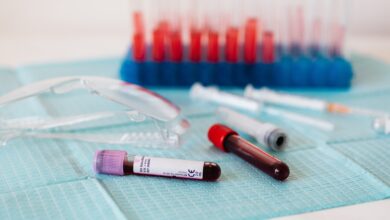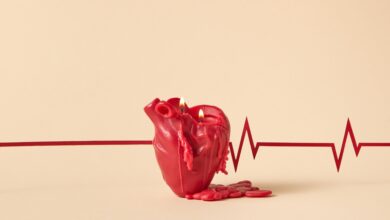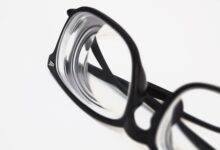
No treatment can eliminate a food allergy.
To find out more, see our fact sheet on treatments below.
Food allergy: treatments
Parents who suspect a food allergy in their child should let their doctor know as soon as possible. An evaluation by an allergist may be suggested by the doctor, who can confirm an allergy using the tests described above.
No treatment can eliminate a food allergy. The only possible option is to strictly banish from your diet the food (or ingredient) that causes the allergy. For advice on this, read the Prevention section.
Some people with allergies need to carry an epinephrine auto-injector with them at all times so that they can react quickly if an anaphylactic reaction occurs. This decision to have the auto-injector with you is made with the doctor.
Treatment of anaphylactic reaction
In case of breathing problems and significant swelling, signs that indicate that an anaphylactic reaction is underway, the only medication indicated is epinephrine, also called adrenaline. It provides rapid relief of symptoms.
Epinephrine has been produced synthetically since 1900. It is obtained in the form of an injectable solution, on or without a prescription (in which case it is not reimbursed by insurance). The injection is practiced in the muscle of the thigh, on the external side.
In North America, there are two brands of epinephrine auto-injectors on the market: Epipen®, which contains a single dose, and Twinject®, which contains two. Note that the second dose of Twinject® is injected differently (see video demonstration in Sites of Interest).
In this case, the second dose may be given if symptoms are observed to worsen or not improve. You should wait 5 to 15 minutes before injecting the second dose. Usually one dose is enough.
Both brands of auto-injector come in 0.15 mg and 0.3 mg doses. The doctor will choose the dose based on the weight of the person. Adrenaline acts quickly, but its effect is short-lived, which is why a second dose is sometimes necessary.
Note that adrenaline is a hormone that the body naturally secretes in situations of stress or fear, and during physical activity. It dilates the airways, increases heart rate and constricts the small blood vessels that supply the skin and digestive system. This hormone mobilizes all the body’s resources to react quickly in an emergency situation.
What is important to know
It is very important to inform those around you of your condition (at school, at work, in leisure, etc.), which creates a safety net. You should also always carry your epinephrine auto-injector with you. You can get a case that you attach to your belt.
Also wear your MedicAlert® bracelet, if applicable. During an anaphylactic reaction, the person may not be able to seek help.
Some important information to pass on to those around you:
- symptoms of an anaphylactic reaction (see Symptoms section);
- how to administer adrenaline using Epipen® and Twinject® auto-injectors (see video demonstrations in the Sites of Interest section).
How to react ?
- When you detect an anaphylactic reaction, act quickly;
- administer the dose of adrenaline contained in the auto-injector;
- call emergency medical services (9-1-1);
- if the symptoms do not improve after the first injection of adrenaline and you have not yet obtained medical help, you can inject a second dose of adrenaline (the second dose of Twinject®, if necessary) 5 to 15 minutes after the first injection;
- doctors will monitor the patient’s condition for at least 4 hours to ensure that the reaction is over6. It has happened in the past that attacks have become exacerbated after a few hours, without further exposure to the allergen.
After using an auto-injector, you should take the empty auto-injector device to a pharmacist and get a new one. Furthermore, epinephrine is sensitive to light and air. Watch the product expiration date.
In an emergency, doctors advise using epinephrine first. Other medications, such as antihistamines or bronchodilators (commonly used by people with asthma), have no effect on an already severe reaction. Ask your doctor.
Important: note that taking beta-blocker drugs, used for example to treat hypertension, reduces the effectiveness of adrenaline. These drugs are contraindicated in people requiring an adrenaline auto-injector.
Nutrition advice
To manage the changes in diet caused by a food allergy and to find substitutes and recipes without allergens, the advice of a nutritionist can be very useful.
She can also assess whether taking dietary supplements is necessary. Associations dedicated to food allergies can also be useful.
| Remark. Some forms of allergies (allergic rhinitis, insect venom allergy) can decrease in intensity thanks to desensitization treatment.Performing this type of treatment in cases of severe food allergy is very dangerous, as it involves exposing the allergic person to increasing doses of the allergen. Indeed, the ingestion of a tiny dose of allergenic food can trigger a potentially fatal anaphylactic shock.The only safe way to check that a food allergy has diminished or disappeared is to do a medical skin reaction test or measure the food’s own immunoglobulins (antibodies) in the blood. |








